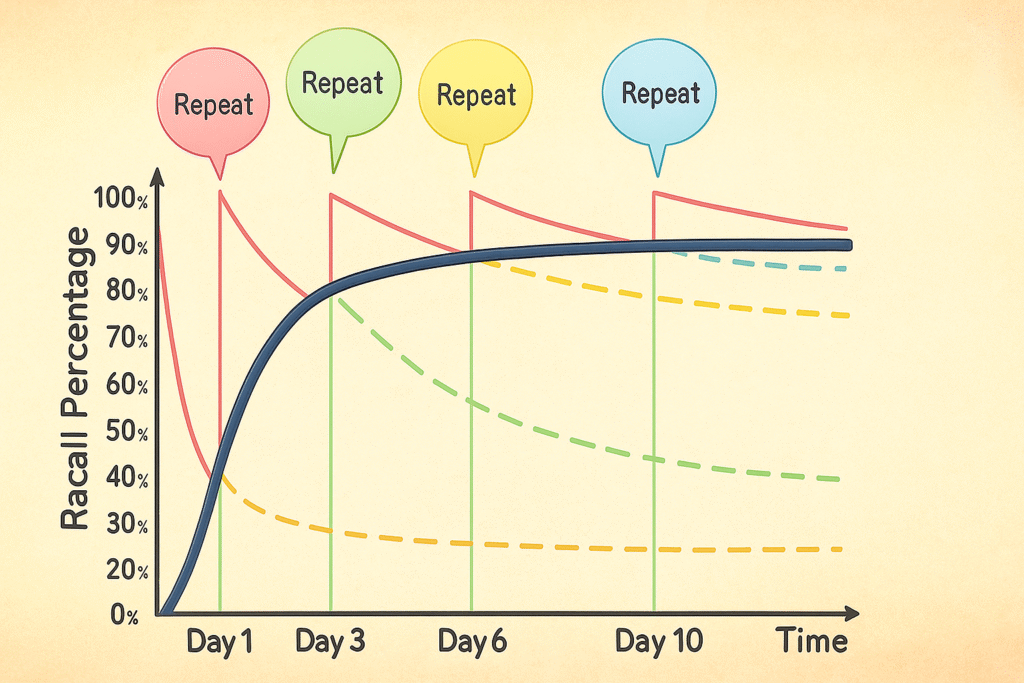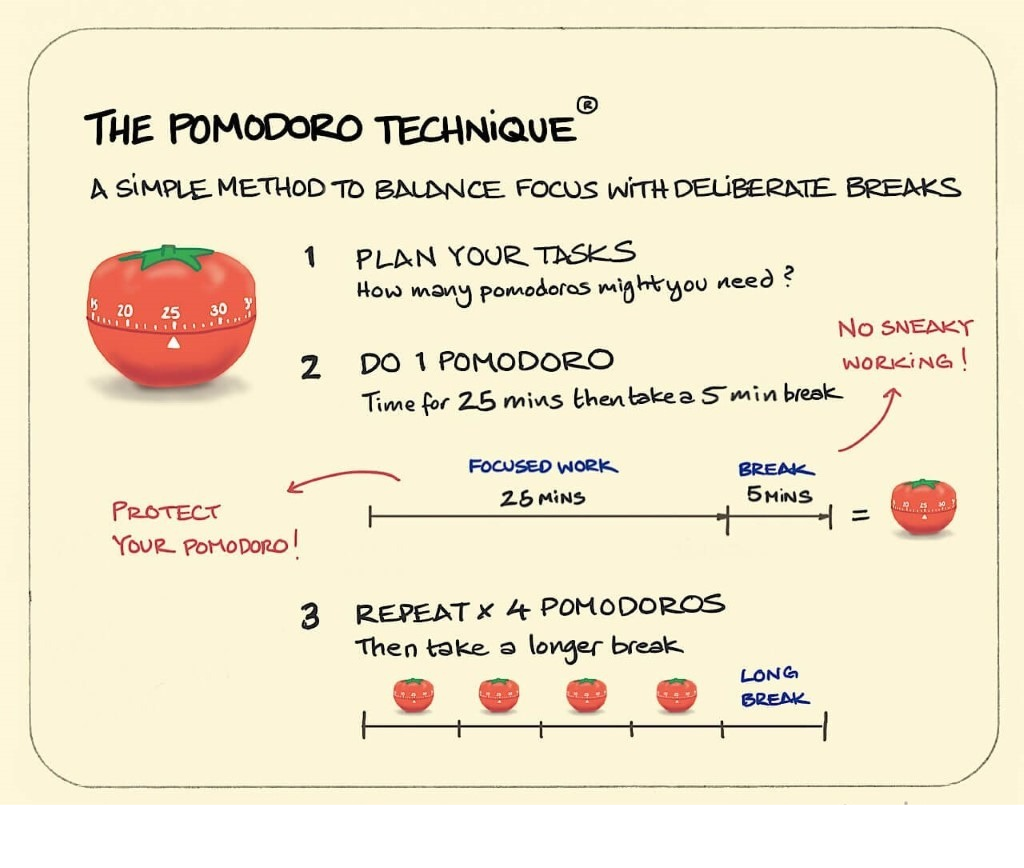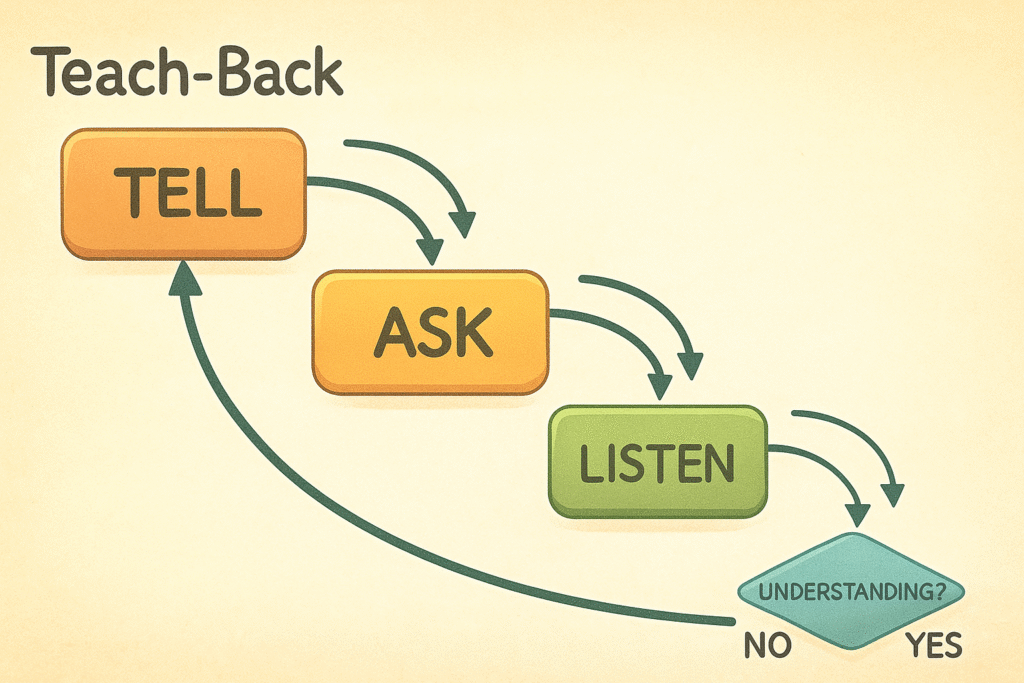How to Study Faster and Remember More in 2025: Proven Methods for Smarter Learning
Here’s a familiar scene: you sit down with good intentions, a fresh notebook, maybe a cup of tea. Two hours pass. Your notes look neat. Your brain? Not so much. I’ve had those nights—highlighter streaks, tabs everywhere, and that quiet worry that none of it will stick by morning.
What finally helped wasn’t more grit; it was changing the way I study. Gentler routines. Smarter methods. Less noise. If you’ve been trying to brute-force your way through, consider this your permission to try something kinder and far more effective.
Why We Forget (Even When We Try Hard)

Brains are efficient. If information doesn’t look important, it gets filed in the “maybe later” bin and quietly fades. Passive reading rarely makes the cut. Neither does stop‑start studying while juggling notifications.
- Reading without quizzing yourself
- Task‑switching every few minutes (even “quick” checks)
- Skipping review sessions because “I saw it once”
- Running on low sleep, high stress, or snack‑for‑dinner nutrition
The fix isn’t heroic effort. It’s structure, repetition, and a calmer pace than you think.
10 Study Methods That Actually Work
1) Spaced Repetition

Cramming is loud, but short‑lived. Spaced repetition is quiet and relentless. Study today, then review in two days, then a week, then two. A simple calendar reminder works. Apps like Anki and Quizlet just make it easier to keep promises to your future self.
2) Active Recall

Close the notes, ask a question, answer from memory. That small moment of reaching—that tiny struggle—cements learning. I like to explain topics out loud while walking around my room. If the explanation gets tangled, I’ve found my next review target.
3) Mind Mapping

Some chapters aren’t lists; they’re constellations. Put the big idea in the center, then branch out to causes, examples, and exceptions. The picture helps you remember the story behind the facts.
4) Pomodoro Technique

Twenty‑five minutes on, five off. Four rounds, then a longer break. It’s not fancy—but it keeps you from drifting. I often stand during the short breaks, top up water, and stretch my shoulders. Simple little reset.
5) Teach It Back

If you can explain it in plain language, you probably own it. Teach a friend, or record a two‑minute voice note like you’re leaving instructions for your future self. The rough spots reveal themselves quickly (and kindly).
6) Notes That Earn Their Keep
Highlighting is a start, not a strategy. Try the Cornell method, keep headings tidy, and add a short summary at the end of each session. When you return later, it feels like past‑you left breadcrumbs.
7) Mnemonics and Memory Hooks
Acronyms, tiny rhymes, goofy mental pictures—use anything that sticks. If it’s a little silly, even better. Your brain files it under “memorable” instead of “generic.”
8) Protect Your Sleep
Sleep consolidates what you learned. Seven to nine hours isn’t indulgent; it’s part of the plan. After heavy sessions, a short nap can sharpen recall more than another bleary hour at the desk.
9) Move a Little
Quick walk. Light stretch. A handful of squats next to your chair if that’s all you’ve got. Blood flow up, focus up. No gym membership required.
10) Fewer Distractions, Fewer Excuses
One window. One notebook. One timer. Everything else waits outside the room. It’s amazing how much easier studying feels when the world goes quiet for half an hour.
Habits That Make Learning Easier (Even on Tired Days)
Eat Like You Mean It
- Omega‑3s: salmon, walnuts, chia seeds
- Antioxidants: blueberries, dark chocolate, leafy greens
- Protein + slow carbs: eggs, beans, whole grains
Real food at regular times. Water within reach. Your brain notices.
Lower the Noise
Stress scatters attention. Five slow breaths. A short brain‑dump in a notebook. A ten‑minute walk without your phone. Small rituals, big difference.
Make a Nest for Focus
Clear desk, decent chair, warm light. If you start to stall, change rooms. New angle, new energy.
Simple Tools That Actually Help
Use tech to remove friction, not to build a maze. These stay out of your way:
| Tool | Best For | Cost |
|---|---|---|
| Anki | Spaced repetition flashcards | Free |
| Quizlet | Active recall & quick sets | Free/Paid |
| Notion AI | Notes, planning, simple systems | Free/Paid |
| Pomofocus | Pomodoro timer that stays out of the way | Free |
Common Traps to Skip
- Last‑minute cramming disguised as “focus mode”
- Studying with constant pings and twelve open tabs
- Telling yourself “I read it once” equals “I remember it”
- Trading sleep and real meals for tired screen time
A One‑Week Reset That Builds Momentum
Not a bootcamp—just a steady ramp you can actually climb:
- Day 1: Clear your desk, list subjects, pick one priority.
- Day 2: Make 20 flashcards. Practice active recall.
- Day 3: Schedule spaced reviews for the hardest topic.
- Day 4: Map a tricky chapter. Keep it messy and honest.
- Day 5: Teach a concept to a friend or record a 3‑minute voice note.
- Day 6: Guard a 7–9 hour sleep window and take a 20‑minute walk.
- Day 7: Look at what worked. Adjust next week accordingly.
Little Quotes, Big Push
“The best way to learn is to teach.” – Richard Feynman
“Don’t just study hard, study smart.” – Unknown
“Consistency is the key to mastery.” – Anonymous
Extra Tips That Help on Busy Days
- A short walk resets attention better than another scroll
- Water on the desk—focus lasts longer than you think
- Instrumental or white noise beats lyrics for deep work
- Change posture or location before your energy tanks
FAQs
How long should I study each day?
Four to six focused hours tends to be plenty. Breaks aren’t a luxury; they’re how you keep going tomorrow.
Can apps really help me learn faster?
Yes—when they keep you honest about review schedules and help you quiz yourself. Anki, Quizlet, Notion, and a simple Pomodoro timer are more than enough.
How do I stay motivated?
Lower the bar to start. Tiny goals, visible progress, small rewards. Momentum shows up first; motivation follows.
Wrapping Up (and a Gentle Nudge)
Studying faster isn’t a personality trait; it’s a set of repeatable moves. Space your reviews. Test yourself. Sleep like it matters—because it does. Keep the system light enough that you’ll use it on a bad day, not just a perfect one.
Free 7‑Day Study Planner
Want a printable plan to get started? Join the list for the planner and short, practical emails that actually help.
[Comment it below in our YouTube channel Community post]
soon Yt post available
For more study hacks



Давно хотел разобраться с эту тему, и как раз обнаружил
в этой публикации полезный контент!